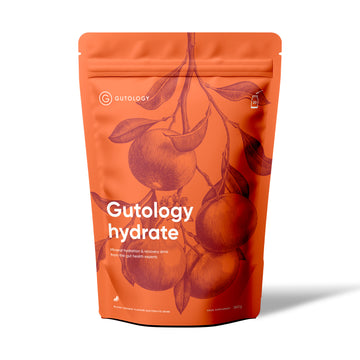Collagen has recently become a popular supplement due to its proposed health benefits, but what is it, and how can it contribute to your health?
What is Collagen?
Collagen is a structural protein found in many of the body’s tissues. It is the main component of connective tissues, with 25-35% of the body’s whole protein content being composed of collagen1.
There are at least 16 types of collagen within the body, but 80-90% of them belong to types I, II, and III1. These different types have different structures, and different functions within the body:
- Type I is the most prevalent type of collagen in the body, and is a vital component of tendons, organs, bones, and skin. As it is found in connective tissues, a decrease in type I results in characteristics such as sagging skin, fine lines, brittle nails, and thinning hair1.
- Type II is less prevalent in the body than type I, and is a major component of cartilage, with significant function in the skeletal system1.
- Type III is generally found in reticular fibres, such as in the bone marrow. Type III is also considered a major structural component within hollow organs such as blood vessels, the uterus and bowel tissues (which must withstand stretching) and is commonly found alongside type I fibres1.
Supplements are most commonly produced from bovine sources, but supplements from pork, chicken, and fish collagen are becoming increasingly common. Vegetarian and vegan supplements are currently still being developed but there are supplements available which may boost the body’s natural production of collagen.
Benefits of Collagen
Due to collagen’s presence all over the body, it may have a positive influence in multiple body systems.
Skin Health
Collagen fibres make up 70% of both the upper and lower layers of skin, and therefore supplementation may have benefits for improving skin health2. With ageing, the body produces less and lower quality collagen, a visible sign of which is in the skin, which becomes less firm and supple, and may appear more wrinkled2.
One 2014 study3 has shown that those who took 2.5 or 5 grams of collagen daily for 8 weeks showed improvements in skin elasticity, compared to control group.
A 2019 review4 of eight studies including 805 participants concluded that oral collagen supplements were found to increase skin elasticity and hydration, and reduce skin ageing.
Collagen supplements may also promote the production of other proteins which support the structure of the skin, including elastin and fibrillin.
Joint and Bone Health
Taking collage supplements may help to maintain the integrity of cartilage in the body, which helps to protect the joints5. As collagen production decreases with age, bone mass also deteriorates, increasing the risk of bone and joint disorder development. Some research has shown that taking collagen supplements may help to reduce symptoms of joint disorders and reduce joint pain overall6, as well as reducing the risk of osteoporosis5.
Gut Health
As collagen is essential for structural support around the body, it may be considered an essential component for maintaining the structural integrity of the gut, and some research has shown that taking collagen supplements may be beneficial for leaky gut6.
Collagen contains high amounts of amino acids glycine, glutamine, and proline, which some studies show may support gut health. Glycine and glutamine are believed to contribute to a reduction of inflammation, which may be positively associated with reduction in opening of tight junctions due to oxidative stress in the intestine6.
Collagen peptides may also contribute to reduced breakdown of the intestinal lining and enhance production of new smooth muscle cells, which assists in healing the stomach and intestinal lining6.
How to Supplement with Collagen
Most collagen supplements come in the form of powder of tablets. As the body isn’t picky about how collagen is ingested, the form you choose to take it in is down to personal preference.
Powdered collagen is extremely versatile, virtually tasteless, and highly soluble, meaning it can easily be added to a variety of foods, including smoothies, soups, oats, and omelettes. Alternatively, you could make your own collagen-rich bone broth. Our recipe can be found here.
A 2.5 – 15 gram7 dose of collagen daily appears to be safe and effective, depending on the particular supplement and the reason for taking it. When considering collagen products, make sure to choose supplements which contain ‘hydrolysed’ collagen or collagen ‘peptides’. This means that the collagen has already been broken down, making it more easily absorbed and used by the body8.
Possible Side Effects
Currently, there are not many known risks associated with taking collagen supplements
Experiencing side effects to collagen supplements is considered rare, but are often mild and can include9:
- Diarrhoea
- A general feeling of fullness
- Rashes
- Heartburn
- Lingering bad taste
In most adults, taking collagen supplements are not considered to pose any health risks.
Taking a collagen supplement may have positive health benefits, including firmer skin, stronger bones, and healthier joints. Collagen can be easily incorporated into the diet, and is widely available to buy in a variety of supplement forms.







